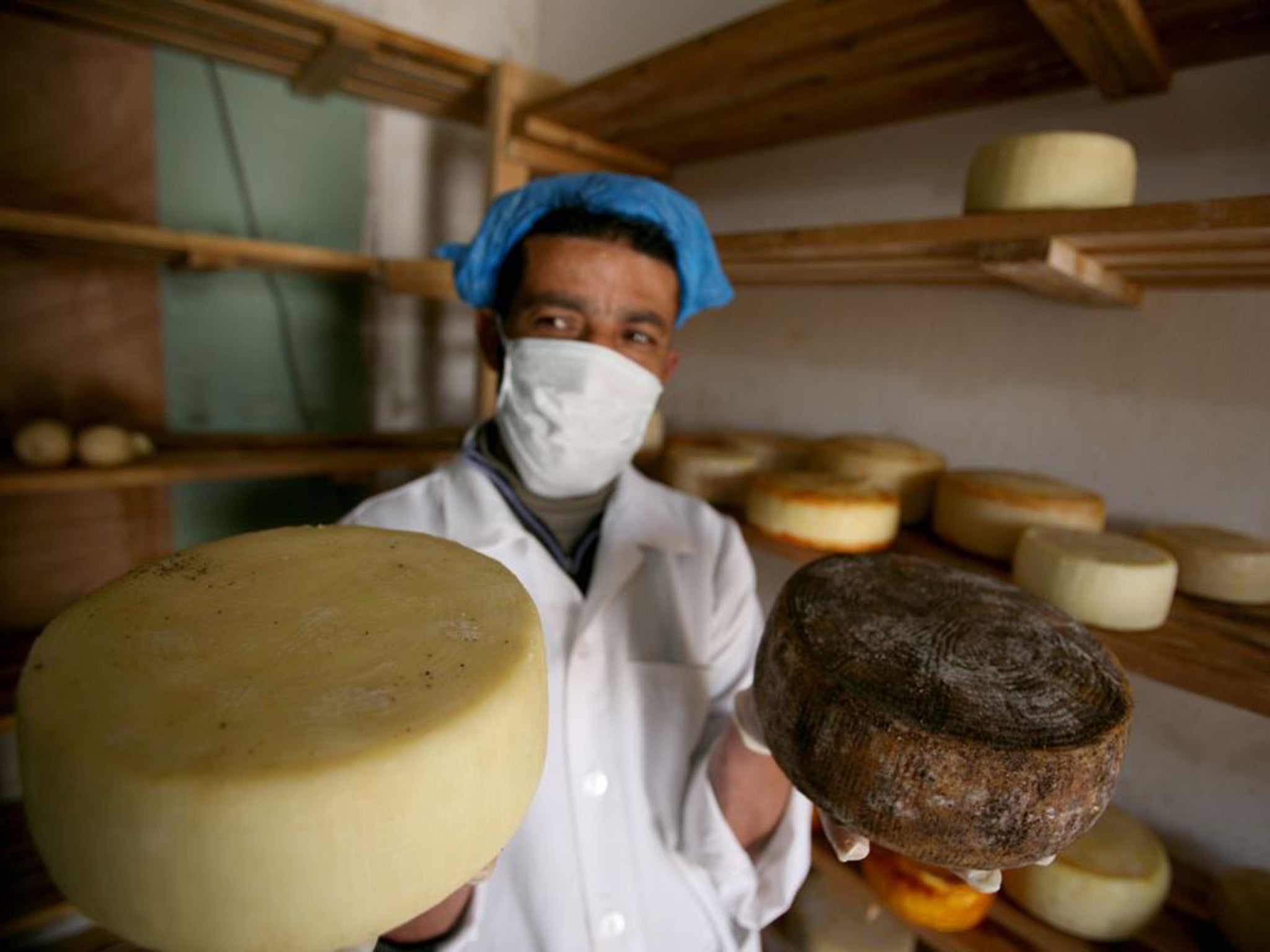Palestinian dairy and meat firms face bleak future if Israel continues import ban
Palestinians claim Israeli restrictions on ‘imports’ to East Jerusalem are unfair

Your support helps us to tell the story
From reproductive rights to climate change to Big Tech, The Independent is on the ground when the story is developing. Whether it's investigating the financials of Elon Musk's pro-Trump PAC or producing our latest documentary, 'The A Word', which shines a light on the American women fighting for reproductive rights, we know how important it is to parse out the facts from the messaging.
At such a critical moment in US history, we need reporters on the ground. Your donation allows us to keep sending journalists to speak to both sides of the story.
The Independent is trusted by Americans across the entire political spectrum. And unlike many other quality news outlets, we choose not to lock Americans out of our reporting and analysis with paywalls. We believe quality journalism should be available to everyone, paid for by those who can afford it.
Your support makes all the difference.At the Hamoda Company for Food and Dairy Products in the West Bank village of Sawahreh, a young man wearing a blue plastic hair covering is hard at work placing strawberry yogurt containers into cartons so that the product will be ready for distribution.
It is monotonous but at least it is work, nothing to take for granted in a West Bank economy where unemployment is near 20 per cent.
But, according to Hamoda’s quality-assurance director Hazem Mashaqi, the young man’s job is now in danger – as are many of the positions among the 110 workers in the plant – as a result of a ban imposed by Israel last month on imports of Hamoda’s milk, yogurt, cheese and salads to nearby East Jerusalem. That is where the company makes close to 50 per cent of sales, according to executive manager Mohammad al-Sous.
“If the ban is not ended, it will cost many jobs, maybe mine, I can’t guess,” said Mr Mashaqi, adding that the company is running promotions in the West Bank in a bid to compensate for lost East Jerusalem sales.
Hamoda is one of six West Bank dairy and meat producers to have their products turned back at the Beitunya checkpoint near Ramallah – the transit point for goods entering Israel – on 9 March at the start of the ban. Israel justifies the measure on the grounds that the Palestinian Authority (PA) has failed to provide adequate assurances that the products meet Israeli health standards. Israel’s agriculture ministry said it had given the PA a number of chances in the past to raise its standards but the body had failed to do so – including failing to fill out a questionnaire from the Israeli veterinary services about inspection procedures.
Palestinian Authority officials and company executives counter that the health fears are spurious. Rather, they say Israel is interested in asserting its claim that East Jerusalem – which Israel occupied in 1967 and annexed in a move rejected by much of the international community – is part of Israel and in having Israeli firms take over the market share of their ousted Palestinian counterparts. “They want to claim East Jerusalem as part of Israel’s capital,” said Tariq Abu Laban, director-general for marketing in the PA Ministry of Agriculture.
To some Israelis, the ban is misguided. Israel’s Co-ordinator of Government Activities in the Territories, General Yoav Mordechai, has voiced concern that dismissals of workers could enflame tensions in the West Bank. He has been pressing the country’s agriculture ministry to lift the ban, so far without success, according to Haaretz newspaper.
Join our commenting forum
Join thought-provoking conversations, follow other Independent readers and see their replies
Comments